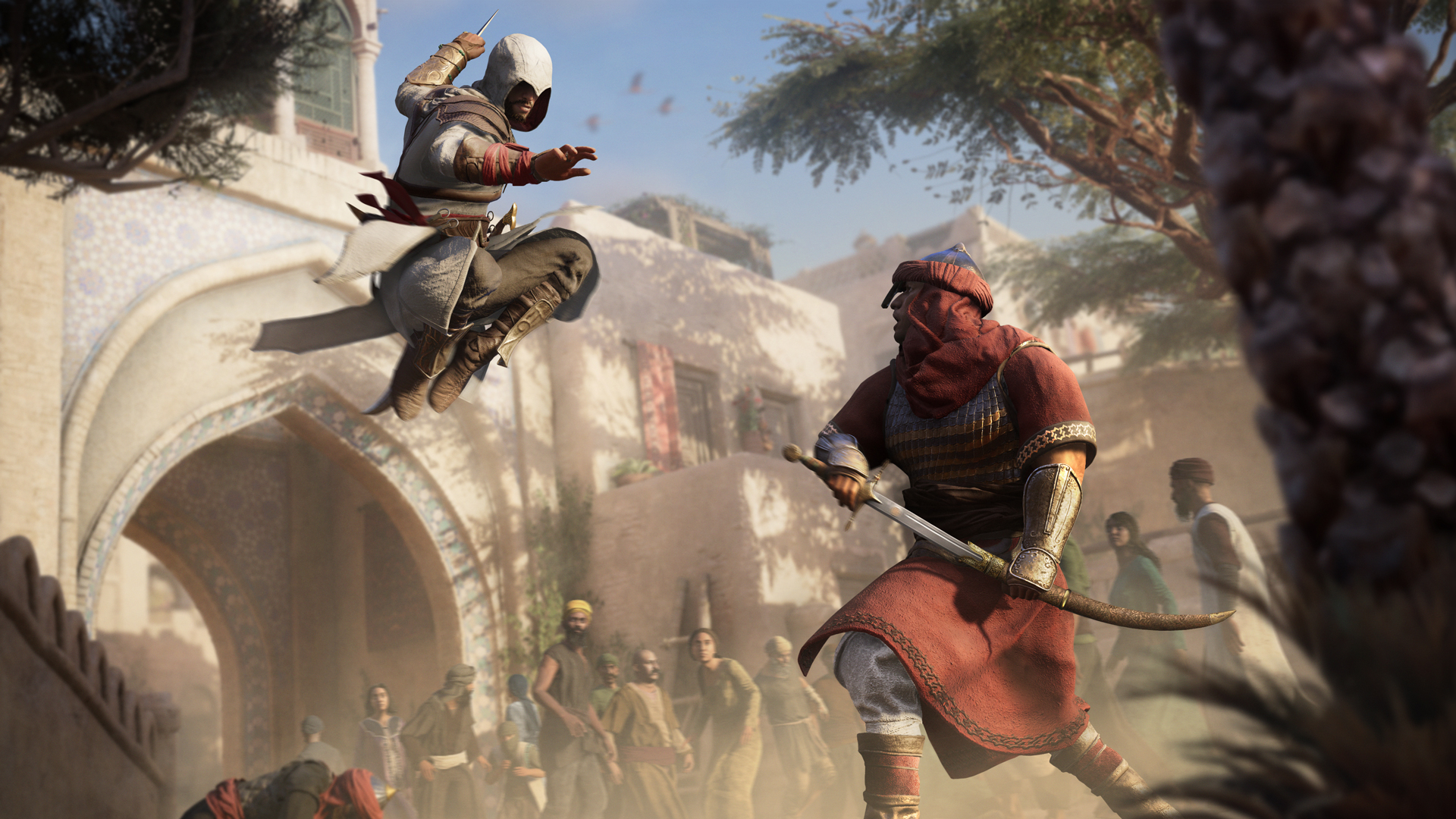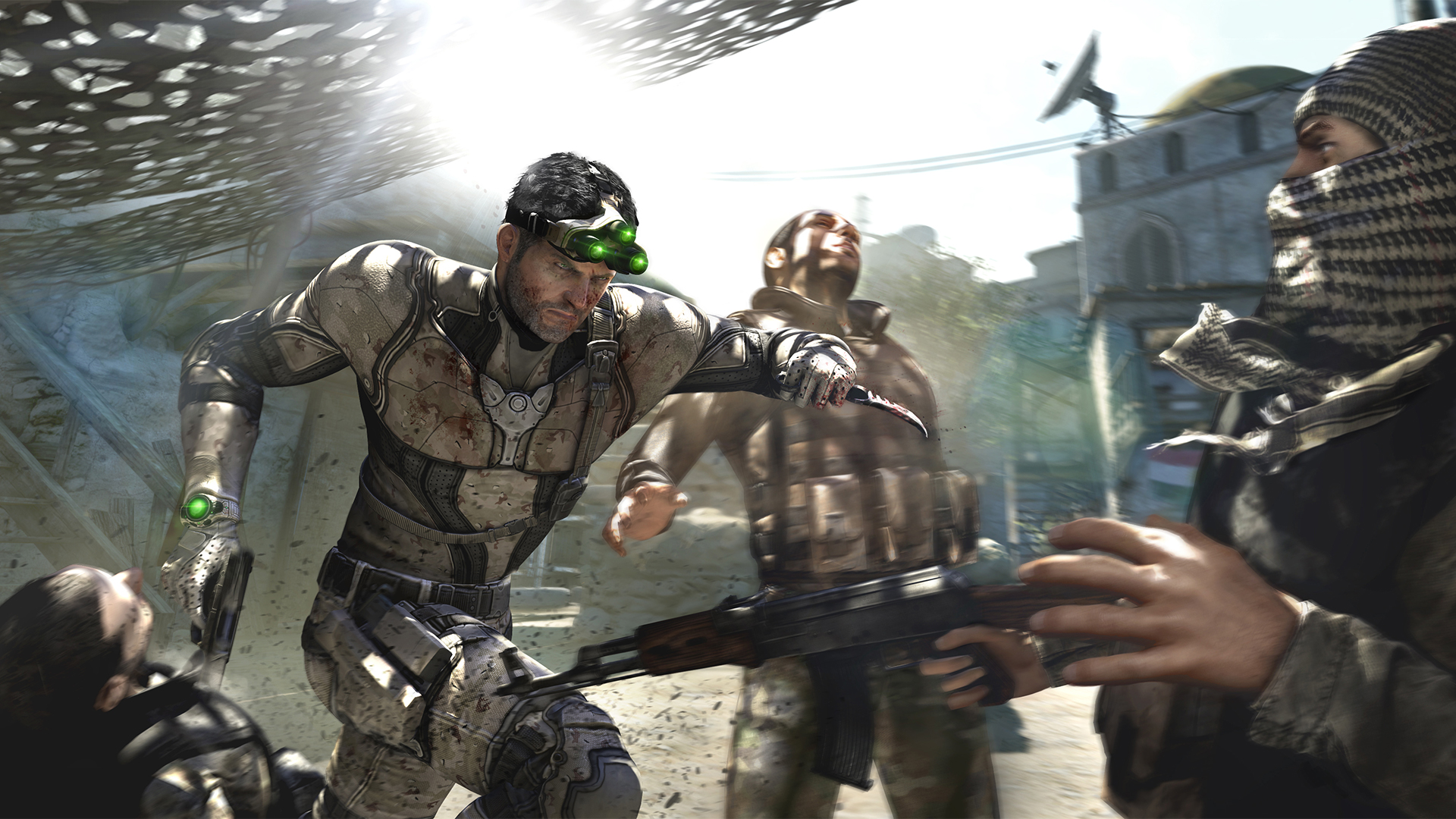
Isn't it fascinating how a 15 second gameplay clip is all it can take to divide a community? Ubisoft recently showcased Assassin's Creed Mirage, a homage to the 2007 stealth-action adventure that kickstarted one of the industry's most beloved franchises. This time you'll take on the role of Basim Ibn Ishaq, stalking rooftops of ninth-century Baghdad as you guide the character from young disciple of the Hidden Ones to the master assassin we met in Valhalla.
The last three mainline installments may have been open world action-RPGs, but Mirage is operating on a different scale. Baghdad is closer in size to Assassin's Creed Unity's Paris map, with Ubisoft opting to put a renewed emphasis on stealth, parkour, and assassinations in more densely-packed playspace. To help sell the fantasy of being a young assassin operating in treacherous terrain, Ubisoft has made Basim a 'glass cannon' – capable of dealing massive damage under the right circumstances, but unable to withstand much in return.
As a fan of the original Assassin's Creed, whose interest has waned as the series lost sight of its original mission statement, I'm into this framing. Parkour is back to the forefront, with Basim able to nimbly maneuver around environments to escape pursuing aggressors. Avoiding direct conflict is more viable too, thanks to a suite of customizable stealth tools that complement the hidden blade. And then there's Assassin's Focus – the focus of so much division.
This new ability allows Basim to takedown up-to four marked enemies in rapid succession. At a glance, it looks as if he's teleporting between targets who have no ability to defend themselves, although creative director Stephane Boudon maintains that this visual flourish is merely reflective of your proficiency. "Assassin's Focus is a new ability for Basim that allows him to quickly chain assassinations. It's really a showcase of Basim's incredible agility and mastery."
Shoot to thrill
It's a good excuse for the implementation of a cool mechanic. The broader story of Mirage remains a mystery, but suppose it's another example of an assassin or templar using the Animus to root around in memories, then Focus could easily be explained away by a glitch in the system – or the character moving so quickly that the software can't keep up. It doesn't really matter. All I know is that it looks like it's going to be a lot of fun to wield.
I also think this is one of the better examples of a 'Focus' system being implemented by Ubisoft. Whether it's because of agility or the Animus, the concept feels more in-keeping with the Assassin's Creed universe than when the publisher tried to introduce something similar in Splinter Cell: Conviction. Mark and Execute allowed Sam Fisher to dynamically dispatch marked enemies with a single shot each – further refined in sequel Blacklist, with Mark and Execute in Motion allowing for more fluid assassinations.

"It's really a showcase of Basim's incredible agility and mastery"
Stephane Boudon, create director
As powerful as Mark and Execute made me feel, the mechanic pinpointed the moment Splinter Cell had strayed too far from what I liked about it to begin with. The strongest tool in Fisher's arsenal was once a split jump, and now he was sliding over hoods of cars in slow motion, executing groups of enemies in broad daylight with the touch of a button. It was a really cool concept that just so happened to be in the wrong game.
It makes perfect sense for Assassin's Creed though. A series which has often sought to deliver the fantasy of being a capable, agile assassin. One where you're supposed to be able to move efficiently through groups of enemies when they are caught unaware. Is it a little silly that Basim teleports between marked enemies, rather than giving us the satisfaction of seeing a slick and orchestrated real-time cinematic? Sure, I'll concede on that point. But I can't imagine that I'll care all that much when I'm tearing Black Box missions apart, one line of templars at a time.
Assassin's Creed Mirage is one of the most anticipated upcoming Ubisoft games of the year. It's set to launch for PC, PS5, PS4, Xbox Series X, and Xbox One on October 12.







